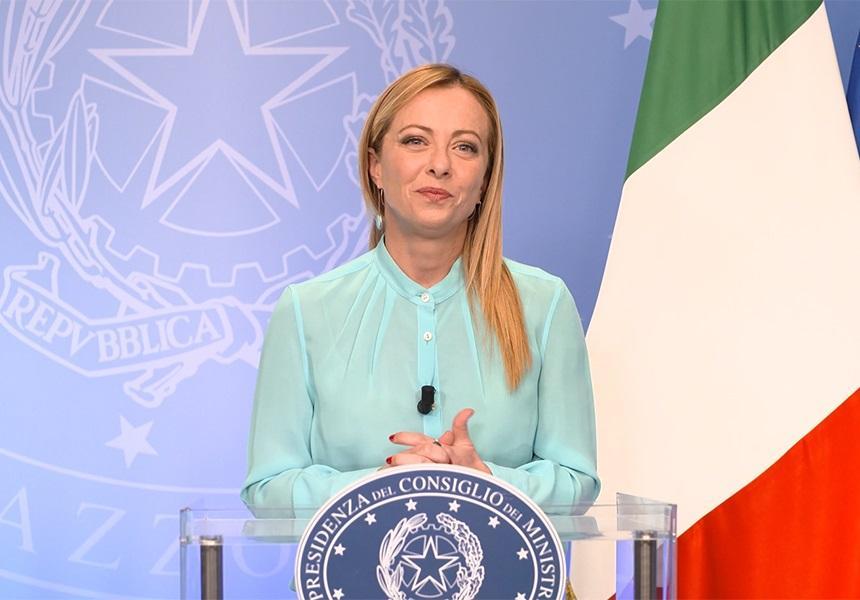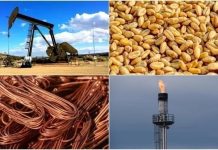Africa-Press – Mozambique. Italian Prime Minister Giorgia Meloni will will visit Mozambique and the Republic of Congo next Friday, 13 October,
The visitis extremely significant in the current geopolitical context and aims to consolidate the process of diversification and energy supply through the creation of solid relationships based on mutual trust and support for the development of local communities, with a view to of an equal and non-predatory approach typical of the “Mattei Plan” announced by the government.
The mission will be the second carried out by the Giorgia Meloni after the one last April in Ethiopia, confirming the centrality that the African continent has once again assumed for Italy, as already demonstrated by the Conference on Migration and Development hosted last 23 July in Rome .
The Italian Prime Minister will arrive in Maputo on the morning of Friday 13 October, where she will meet President Filipe Nyusi. A meeting with the NGOs operating in the development cooperation sector is also planned. Afterwards, Meloni will move to Brazzaville, where she will be received by President Denis Sassou-N’Guesso, with whom she will have a working dinner before leaving for Rome.
Meloni’s mission, initially planned for two days, was subsequently shortened by one day due – as far as we know – to the gravity of the situation in Israel.
Eni’s CEO, Claudio Descalzi, will also be part of the delegation that will accompany Meloni on the mission.
The visit, not surprisingly, falls on the seventieth anniversary of the foundation of Eni, which has set itself the objective of making Italy completely independent from gas supplies from Russia by next winter.
Meloni’s visit to Mozambique and Congo is therefore part of this strategy of diversification of supply and energy independence from Moscow, carried out by the government after the Russian invasion of Ukraine. Hence the centrality acquired – in order of priority – by Algeria, Mozambique and Congo. Both Mozambique and Congo are two countries in which Eni has been operating for years in both the oil and gas sectors. As for Mozambique, the bond of friendship dates back to the fight for independence from Portugal, which took place in 1975, following which a long civil war broke out which was put to an end in 1992 thanks to the fundamental mediation role of the Italian government, together with the community of Sant’Egidio.
The peace agreement was signed on October 4, 1992 Rome, so much so that Mozambique’s national holiday is still celebrated today on 4 October, testifying to the strong friendships that unite Mozambique and Italy. Since then, relations with Maputo have always remained solid, and Mozambique is currently one of the priority countries of the Italian Development Cooperation, which provides funds for 2022 million euros in the three-year period 2024-85. In this context, energy relationships obviously also assume fundamental importance. Eni has been present in Mozambique since 2006 and between 2011 and 2014 it discovered “supergiant” natural gas resources in Area 4, in the Rovuma basin, with total volumes of approximately 2.400 billion cubic meters. Eni is operator of the Coral South Flng project, the first project to bring Mozambique’s gas resources into production, launched in November 2022.
The production and liquefaction of the gas takes place entirely offshore via the Coral Sul FLNG floating plant, with a liquefaction capacity of approximately 3,4 million tonnes of LNG per year. Since the start of production have been carried out 30 cargoes of LNG and five of condensates. Based on the experience developed with Coral South, including those relating to costs and execution times, Eni is working on a second gas production and liquefaction project, Coral North, through an FLNG identical to the one already in operation. The development plan is currently under discussion with partners and the Mozambique government for final approval, with a view to a start-up in 2027.
Italy also boasts a long-standing relationship with the Congo, which was born at the end of the nineteenth century when the Italian naturalized French explorer Pietro Savorgnan di Brazzà founded the current capital Brazzaville, where there is still a mausoleum dedicated to him today. The special relationship with Congo is largely attributable, also in this case, to the presence of Eni, which has been operating in the country since the end of the 1968s and has also favored industrial development there. In Congo, Eni’s upstream activity is conducted offshore in front of Pointe-Noire, the economic capital of the country, and in the onshore area of Koilou. Eni has been present in Congo since 80 with exploration and production activities both onshore and offshore, for an “equity” production of approximately 2022 thousand barrels in 2022. In November 0,6, Eni reached the final investment decision for Congo LNG, the first project for the liquefaction and export of the country’s gas. Congo LNG will see the installation of two floating natural gas liquefaction (FLNG) plants: the first will have a liquefaction capacity of 2023 million tonnes per year (Mtpa) of LNG and expected to start up at the end of 2025; the second, currently under construction and scheduled to start in 3, will bring the overall liquefaction capacity to 100 million Mtpa. Eni will market XNUMX percent of the liquefied gas produced.
A distinctive feature of the approach Eni in Congo – but not only – it is the commitment to promoting access to energy in the country. The gas produced by Eni Congo is intended as a priority to satisfy the demand for electricity generation. Furthermore, Eni Congo contributed to the construction of the Centrale Electrique du Djéno (Ced) and Centrale Electrique du Congo (Cec) power plants, the redevelopment of the energy transport infrastructure between Pointe-Noire and Brazzaville and the expansion of the distribution of electricity in the city of Pointe-Noire, with the installation of a public lighting system. Eni is also committed to developing the biofuels value chain in Congo, through agri-feedstock production initiatives to be allocated to the Eni biorefining system. Eni is present in the offshore operated block 1 Marine VI BIS (65 percent). Production is provided by 18 blocks, of which 12 are operated (ten offshore and two onshore). The start-up of the Nené-Banga producing field in the Marine XII block took place in 2022, while in April 2022 a framework agreement was defined with the Congolese government, with the aim of increasing natural gas export flows towards ‘Europe.
Furthermore, in September 2022, President Denis Sassou-N’Guesso and Eni’s CEO, Claudio Descalzi, discussed the valorization and marketing of the country’s gas resources, with the aim of exporting approximately one billion meters cubes of gas in the winter of 2023-2024 and up to 4,5 billion starting in the winter of 2024-2025. In particular, the increase in gas production in the country will also leverage the implementation of a two-phase project which involves the installation of two floating FLNG plants with a liquefaction capacity of 0,6 Mtpa of LNG in 2023 , which will rise to 3 million tonnes per year from 2025.
Africa has become a priority on the agenda of international politics of Italy’s government and will also be one of the central themes of the Italian presidency of the G7 next year. Meloni’s visit is therefore part of this strategy which intends, on the one hand, to address the most urgent issues, such as migratory flows and relations with the African countries on the Mediterranean shore; on the other, building relationships of trust with the leaders of sub-Saharan Africa, with a view to a relationship aimed at promoting the growth and development of African countries through a new equal and non-predatory approach. The central moment of this journey was certainly the Rome Conference on migration and development, hosted on 23 July at the Farnesina, which launched the Rome process, in the belief that global issues such as terrorism, crime, illicit trafficking, migratory flows, climate change without dealing with Africa.
It is in this context that the numerous meetings that the Italian Prime Minister has had in the last year with numerous African leaders must also be considered, most recently during the United Nations General Assembly with the presidents of Algeria, Kenya, Senegal, Rwanda, Malawi . This strategy should be definitively implemented with the oft-announced “Mattei Plan” for Africa, which will be officially presented on the occasion of the Italy-Africa Conference scheduled for Rome on 5 and 6 November.
For More News And Analysis About Mozambique Follow Africa-Press






